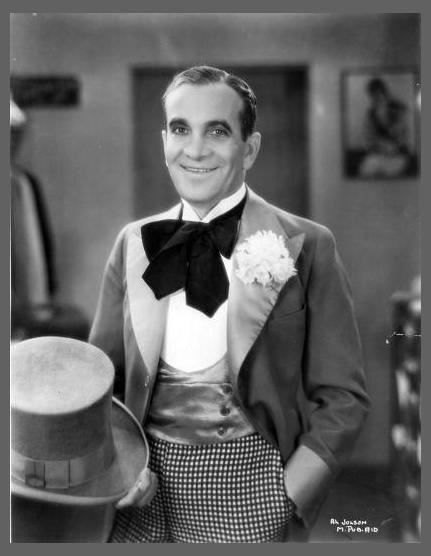 O Cantor de Jazz
O Cantor de Jazz
The Unforgettable Legacy of O Cantor de Jazz
In the annals of music history, the name O Cantor de Jazz stands as a testament to the enduring power of jazz. This legendary band, renowned for their iconic rendition of "My Mammy," captivated audiences with their soulful melodies and unwavering passion.
Formation and Early Challenges
O Cantor de Jazz emerged in the vibrant cultural tapestry of Rio de Janeiro during the 1930s. Founding members Almirante, Noel Rosa, and Heitor Villa-Lobos shared a common love for Brazilian music and a desire to fuse it with the burgeoning jazz genre.
Their early endeavors were met with skepticism from a public accustomed to traditional samba and choro. Undeterred, the band persevered, tirelessly performing at cabarets and small clubs, slowly gaining recognition for their unique sound.
Breakthrough and International Acclaim
In 1932, O Cantor de Jazz recorded their signature song, "My Mammy," a cover of the popular American standard. Its haunting melody and heartfelt lyrics resonated with listeners around the world, propelling the band to international fame.
Their success paved the way for tours across Brazil and Europe, where they shared the stage with legendary artists such as Duke Ellington and Louis Armstrong. O Cantor de Jazz became synonymous with Brazilian jazz, showcasing the genre's versatility and global appeal.
Discography
Throughout their illustrious career, O Cantor de Jazz released a prolific body of work, including:
* My Mammy (1932)
* Brasil (1935)
* Rio de Janeiro (1937)
* Bahia (1939)
* Samba da Benção (1941)
Their music captured the essence of Brazilian culture, blending traditional rhythms with jazz harmonies and sophisticated arrangements.
Members and Legacy
The core members of O Cantor de Jazz remained relatively consistent throughout their existence:
* Almirante (vocalist and guitarist)
* Noel Rosa (vocalist and composer)
* Heitor Villa-Lobos (musical director)
Their contributions to Brazilian music were immense, not only as performers but also as composers and arrangers. Their influence continues to shape the genre today.
Controversies and Cultural Significance
O Cantor de Jazz was not without its controversies. Their adoption of jazz, an American-born genre, drew criticism from some purists who believed it compromised the integrity of Brazilian music. However, the band remained resolute in their artistic vision, bridging the gap between two musical worlds.
Their music became an integral part of Brazilian identity, representing the country's rich cultural heritage and its embrace of global influences. O Cantor de Jazz played a pivotal role in shaping the sound of Brazilian jazz and inspiring generations of musicians.
Conclusion
O Cantor de Jazz's legacy extends far beyond the walls of concert halls and recording studios. Their unforgettable music and indomitable spirit continue to resonate with audiences worldwide. As one of the pioneers of Brazilian jazz, they paved the way for countless artists to follow in their footsteps, leaving an enduring imprint on the musical landscape of the world.
In the annals of music history, the name O Cantor de Jazz stands as a testament to the enduring power of jazz. This legendary band, renowned for their iconic rendition of "My Mammy," captivated audiences with their soulful melodies and unwavering passion.
Formation and Early Challenges
O Cantor de Jazz emerged in the vibrant cultural tapestry of Rio de Janeiro during the 1930s. Founding members Almirante, Noel Rosa, and Heitor Villa-Lobos shared a common love for Brazilian music and a desire to fuse it with the burgeoning jazz genre.
Their early endeavors were met with skepticism from a public accustomed to traditional samba and choro. Undeterred, the band persevered, tirelessly performing at cabarets and small clubs, slowly gaining recognition for their unique sound.
Breakthrough and International Acclaim
In 1932, O Cantor de Jazz recorded their signature song, "My Mammy," a cover of the popular American standard. Its haunting melody and heartfelt lyrics resonated with listeners around the world, propelling the band to international fame.
Their success paved the way for tours across Brazil and Europe, where they shared the stage with legendary artists such as Duke Ellington and Louis Armstrong. O Cantor de Jazz became synonymous with Brazilian jazz, showcasing the genre's versatility and global appeal.
Discography
Throughout their illustrious career, O Cantor de Jazz released a prolific body of work, including:
* My Mammy (1932)
* Brasil (1935)
* Rio de Janeiro (1937)
* Bahia (1939)
* Samba da Benção (1941)
Their music captured the essence of Brazilian culture, blending traditional rhythms with jazz harmonies and sophisticated arrangements.
Members and Legacy
The core members of O Cantor de Jazz remained relatively consistent throughout their existence:
* Almirante (vocalist and guitarist)
* Noel Rosa (vocalist and composer)
* Heitor Villa-Lobos (musical director)
Their contributions to Brazilian music were immense, not only as performers but also as composers and arrangers. Their influence continues to shape the genre today.
Controversies and Cultural Significance
O Cantor de Jazz was not without its controversies. Their adoption of jazz, an American-born genre, drew criticism from some purists who believed it compromised the integrity of Brazilian music. However, the band remained resolute in their artistic vision, bridging the gap between two musical worlds.
Their music became an integral part of Brazilian identity, representing the country's rich cultural heritage and its embrace of global influences. O Cantor de Jazz played a pivotal role in shaping the sound of Brazilian jazz and inspiring generations of musicians.
Conclusion
O Cantor de Jazz's legacy extends far beyond the walls of concert halls and recording studios. Their unforgettable music and indomitable spirit continue to resonate with audiences worldwide. As one of the pioneers of Brazilian jazz, they paved the way for countless artists to follow in their footsteps, leaving an enduring imprint on the musical landscape of the world.